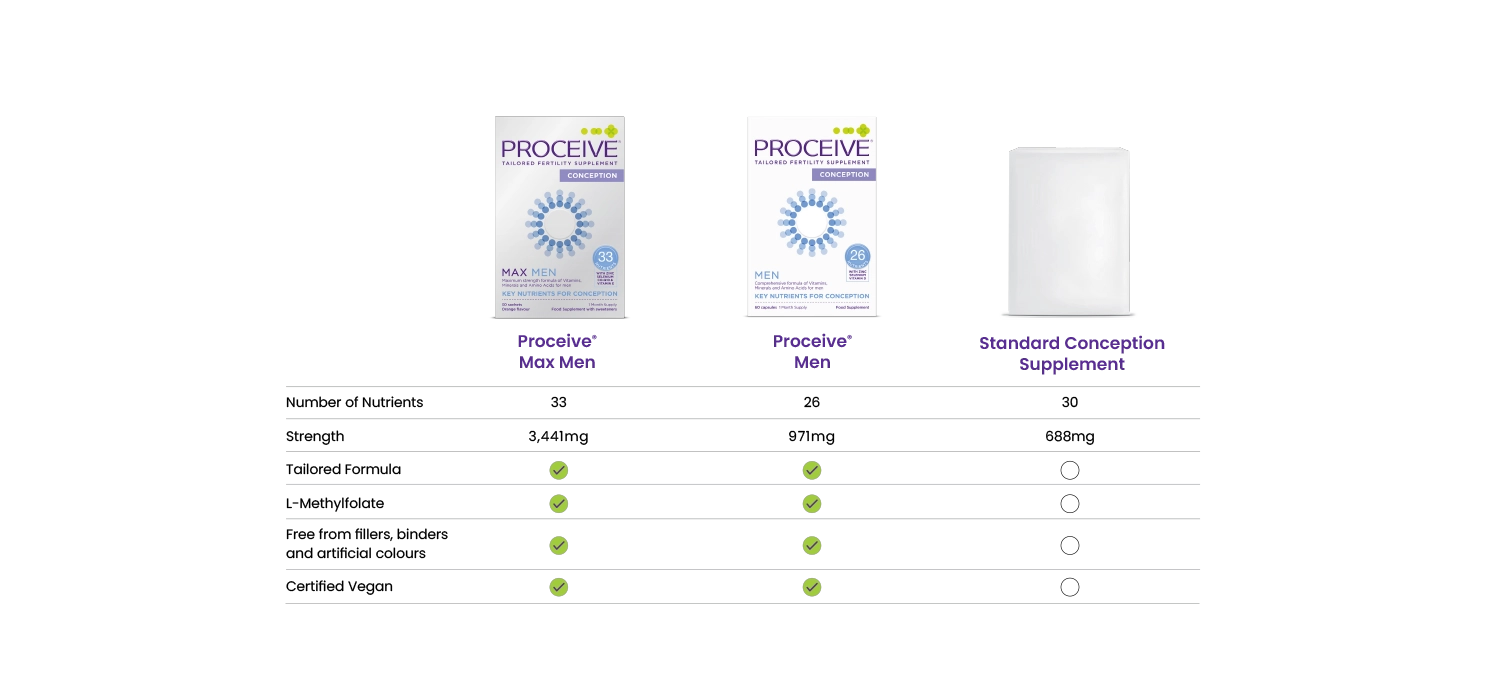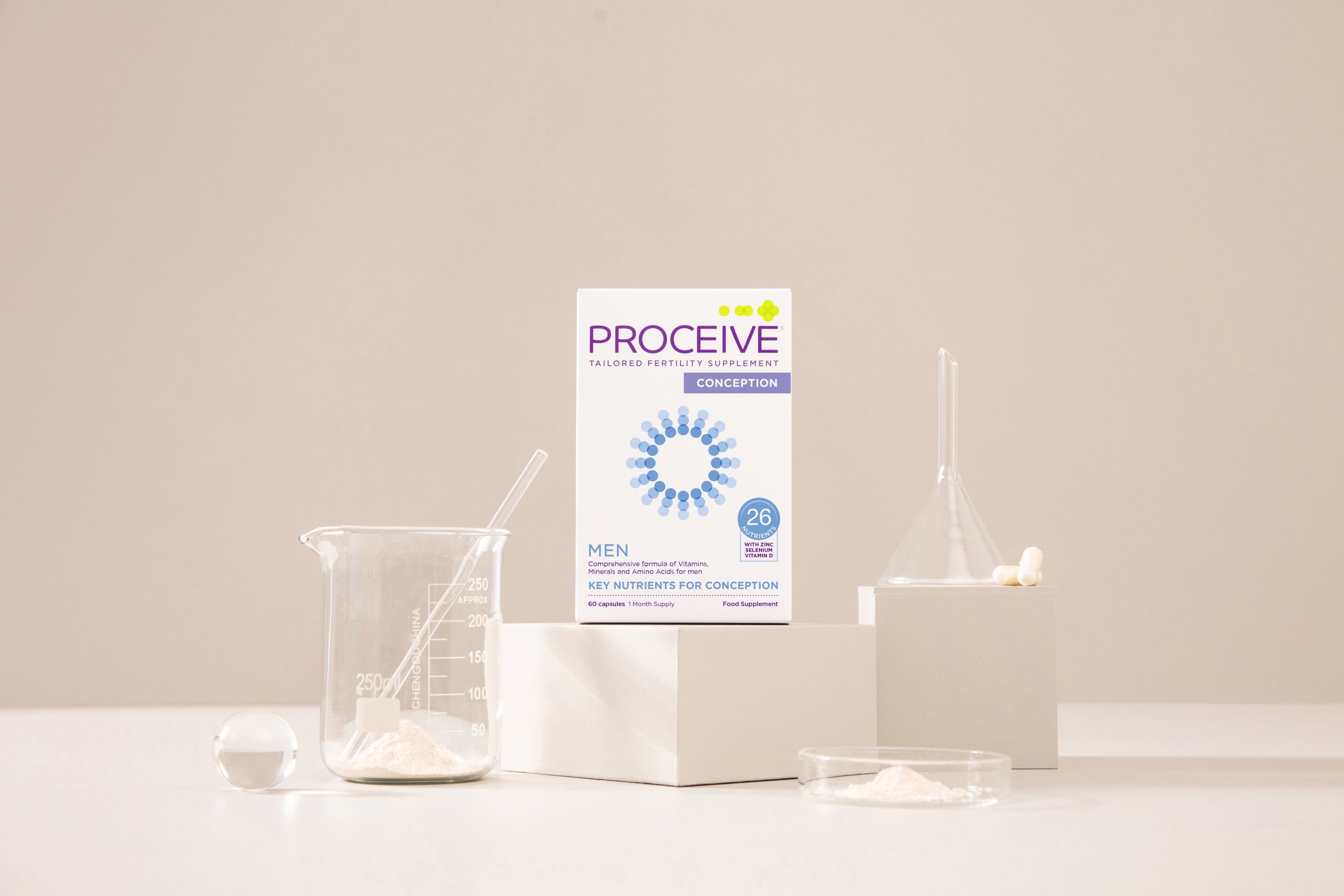
Male Fertility
When it comes to conception, male health is just as important as women's - although it often gets overlooked. Sperm provides 50% of the genetic makeup of a baby, and conception won't happen unless a healthy, well-shaped sperm can get to and penetrate the egg.
Men must produce between 40 and 300 million sperm cells to be fertile. This is an intensive process and the energy involved in creating these cells in significant. The most common cause of sperm deficiencies are nutrient shortages. Men need different nutrients to help produce healthy sperm.
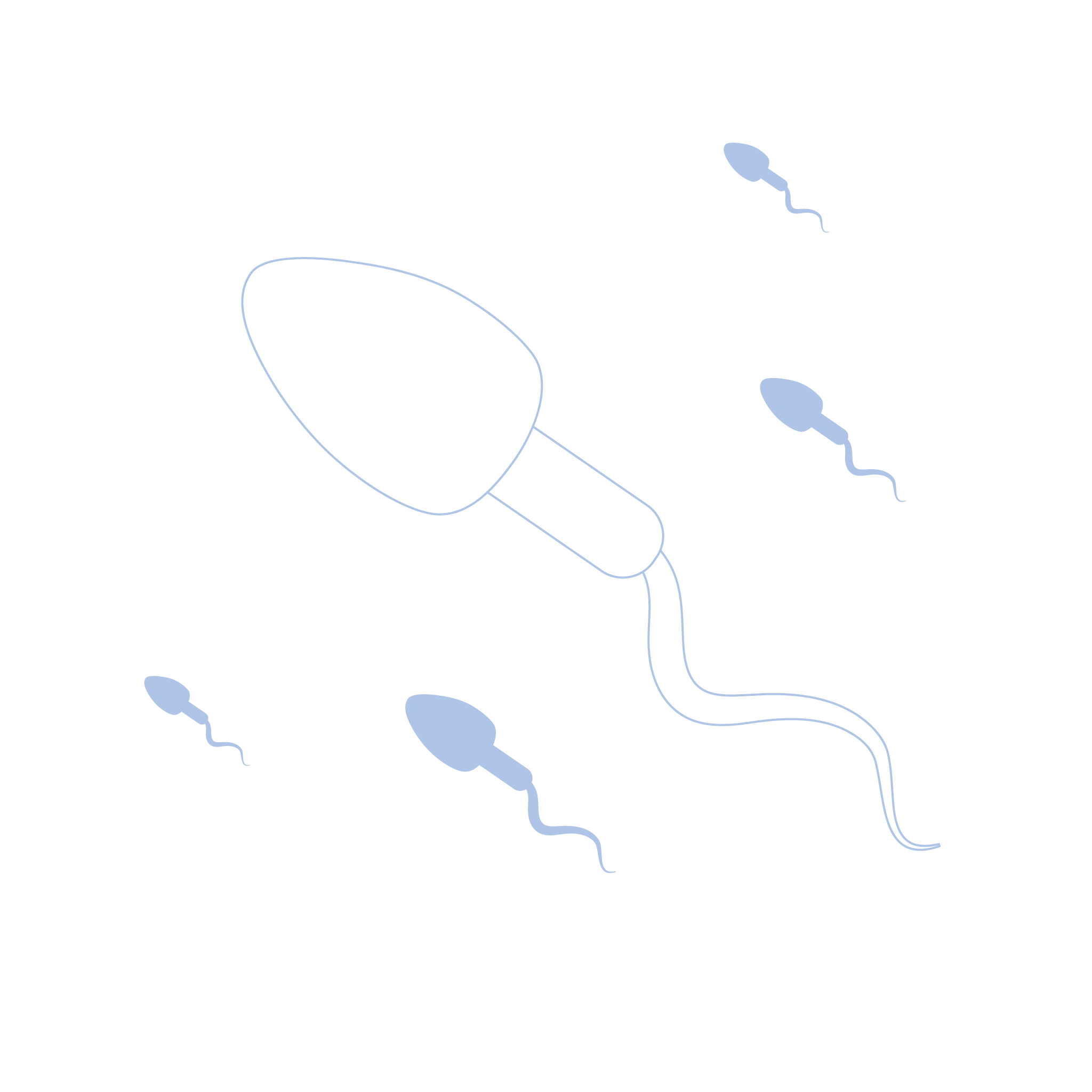
Sperm Health
The sperm cells that are produced are a product of their environment, so it is crucial to get the reproductive system working as it should. Nutrients are needed to get both the environment right (hormone balance, blood sugar balance, immune system, circulation etc) as well as support the development of the sperm cells. Taking steps for healthy sperm can have an impact on sperm health.
The good news is as new sperm is created every 74-100 days, positive diet and lifestyle changes can impact sperm health in as little as 3 months.
How is Sperm made?
Producing sperm is the main function of the male reproductive system. The scientific term for the production of sperm is spermatogenesis and it is a continual process.
Sperm production takes approximately 100 days: 74 for the sperm to develop and an additional 20-30 days to reach maturity.
Men do have a biological clock
Men's fertility also starts to decline around 40 to 45 years of age. The decrease in fertility is caused by the decrease in the quantity and quality of the sperm produced.
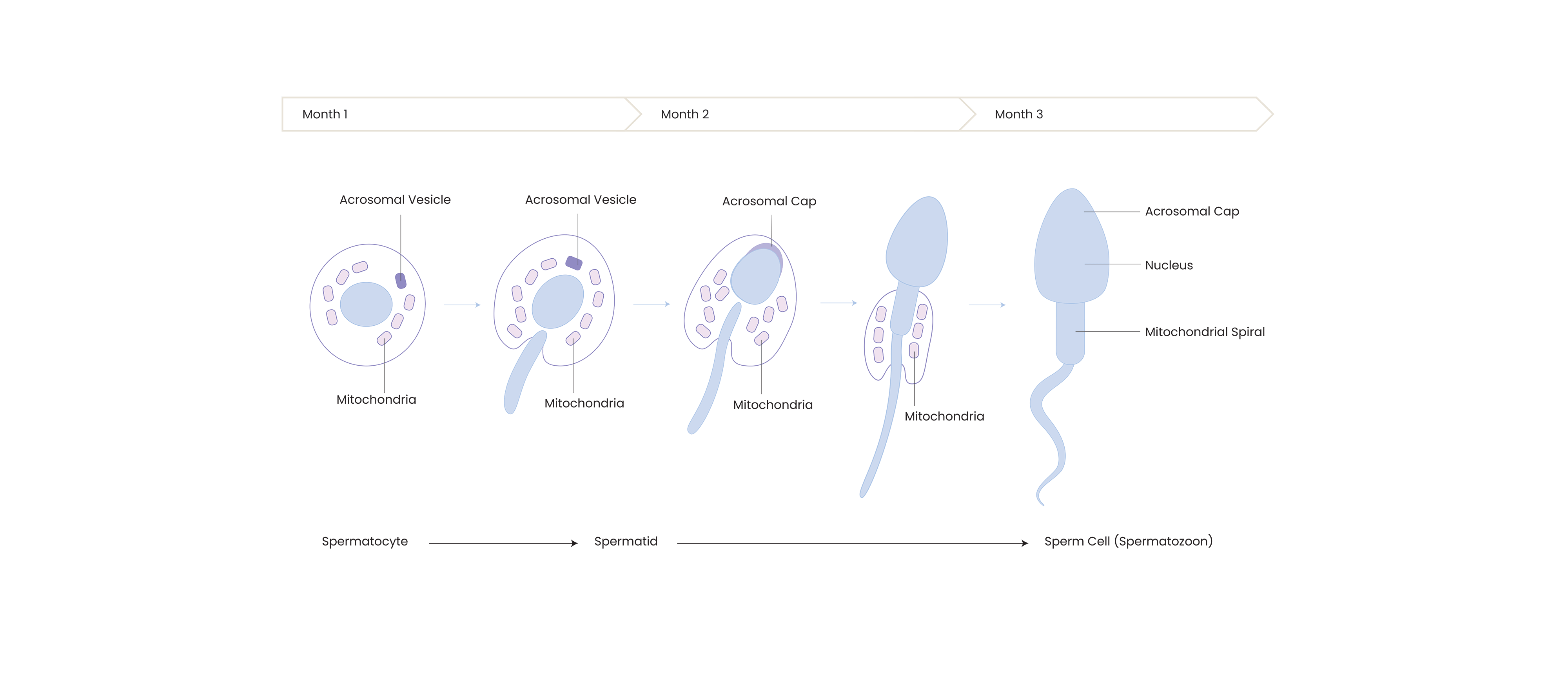
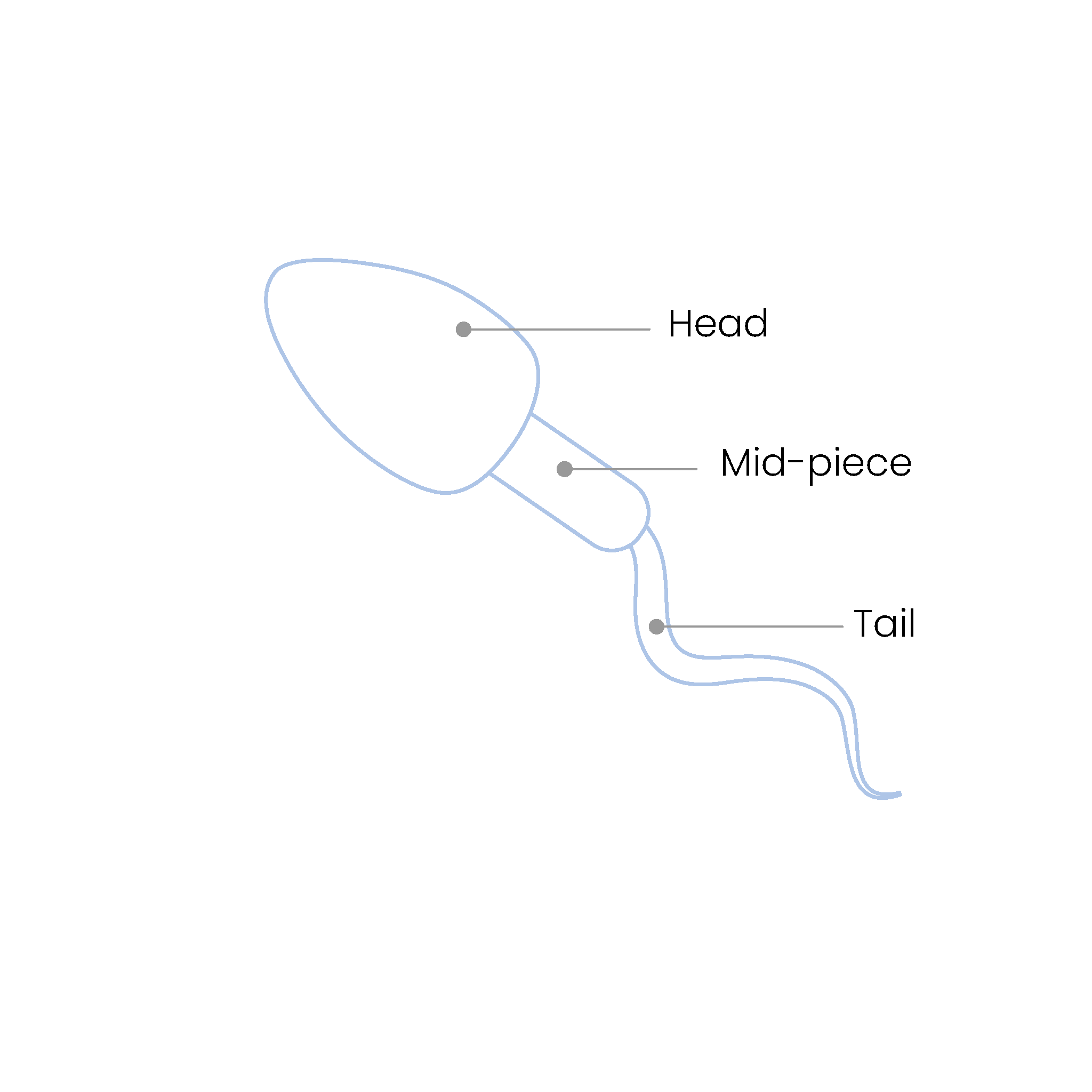
Head
The sperm head contains all the chromosomal material. These chromosomes carry the dad's genetic material ready to pass on to the baby including the chromosome that decides whether the baby will be a boy or a girl.
Mid-piece
This provides the sperm with its energy source which is responsible for the tail’s ability to move and transport the sperm independently. Sufficient energy in the form of a molecule called ATP is critical for sperm production and motility.
Tail
The sperm’s tail is powered by mitochondria. The energy from the mitochondria in a sperm’s tail allows it to swim and move through the female reproductive tract, increasing its chance of fertilizing an egg. Without a properly functioning tail, sperm may swim around in circles rather than forward in a straight line or may not swim at all.
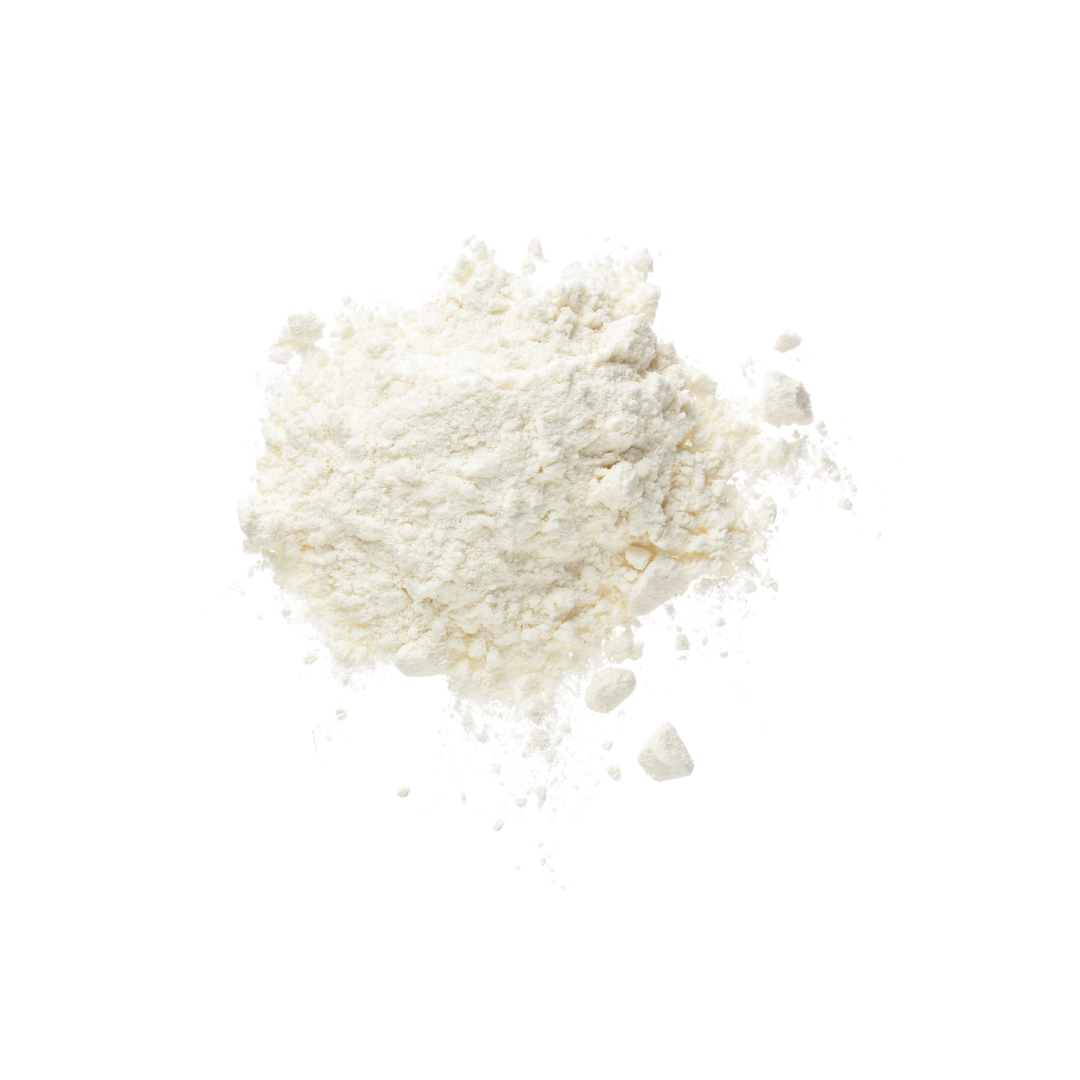
Nutrients
When you consider what sperm need to develop and the journey they have to undertake in order to stand a chance of fertilising an egg its easier to understand why good health in a man is just as important as in a woman when it comes to conception. Nutrients play an important role in the development of the sperm cell during the 100 day cycle.
The good news is that because of the continuous 100-day cycle of sperm production it is possible to impact sperm quality relatively quickly by prioritising a healthy, balanced diet with the right nutrients.
About Proceive® Men
Nutrients play an important role in the development of the sperm cells. A healthy lifestyle, a balanced diet and taking enough exercise are important when trying for a baby. It can be difficult to get all the nutrients you need from your diet in today’s busy world. This is where Proceive® Men may help by providing the extra support needed to support good pre-conception health.

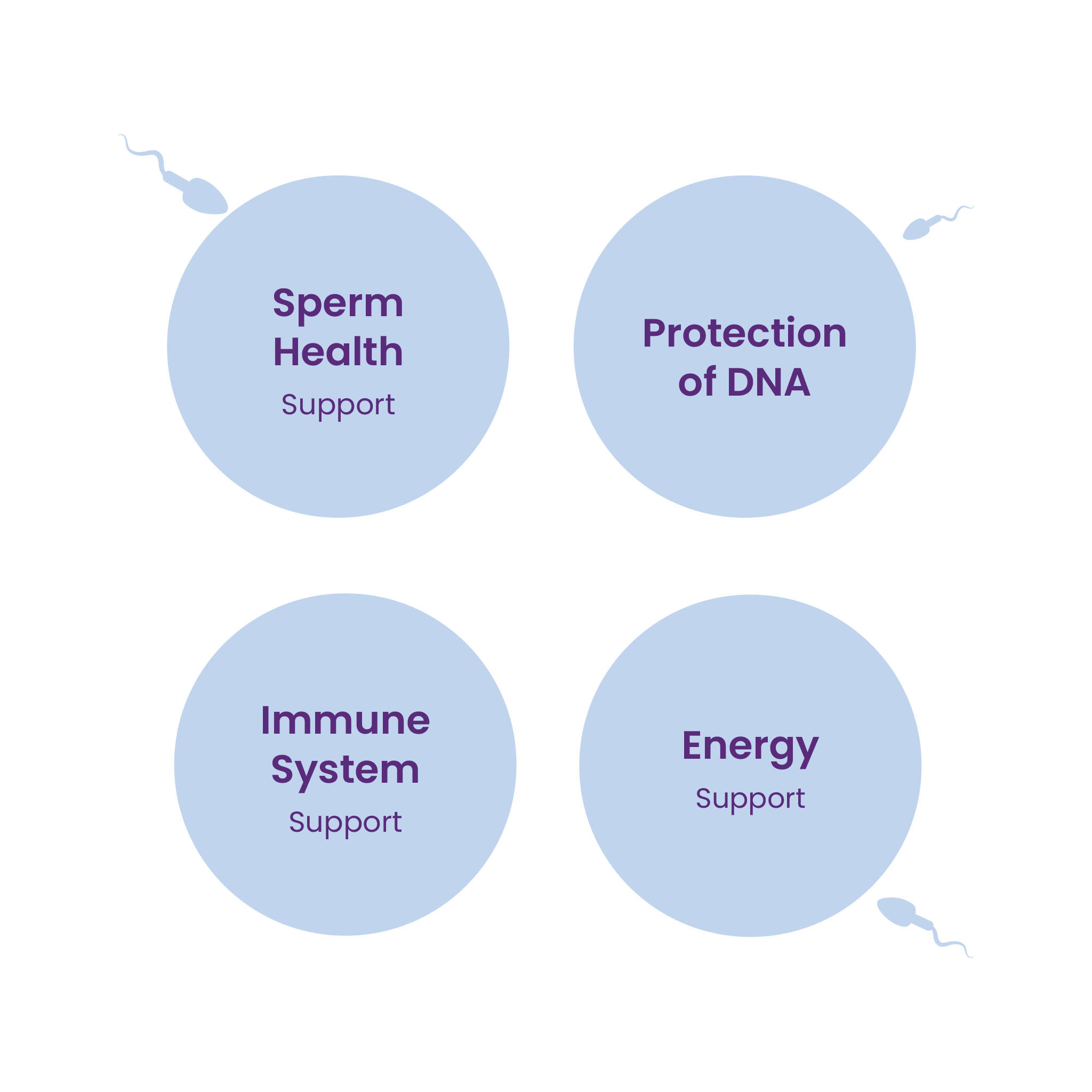
There are two Proceive® Men's formulas;
Proceive® Men is scientifically formulated for men under 40 years of age. It contains a comprehensive formula of 26 key nutrients for conception including Co Q10, Zinc and Selenium.
Proceive® Max Men is formulated for men over the age of 40 years of age and/or men who have been trying to conceive for over 12 months. It is our maximum strength formula with 33 key nutrients for conception including L'Arginine.
To find out which Proceive® Men's product is best for you, click here.
If you have any questions, please don't hesitate to contact us.
Description
How it works
How to take
For Best Results, Why Not Add:
Proceive® Glass Water Bottle – 650ml
€19.95
Coming SoonDescription
How it works
How to take
For Best Results, Why Not Add:
Proceive® Conception Omega 3
€24.95
Coming SoonCompare Formulas
